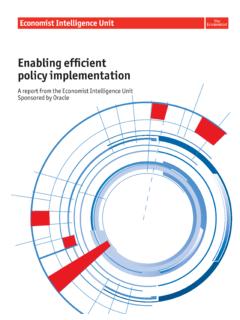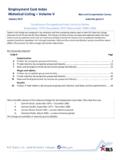Transcription of Depression, ECT and fitness to drive. - Scottish ECT Audit ...
1 depression , ect and fitness to drive. The DVLA changed its guidance on driving and severe mental March that most if not all patients having ECT would qualify as severely mentally ill it is timely to review our guidance in advance of the next ECT Handbook. DVLA guidance is updated twice a year in March and September, there were no new changes relating to Psychaitric conditions in September 2009 . What does DVLA Guidance say? The current guidance is dated September 2009 and psychiatric disorders are in chapter 4 pages 32-34. 1. Anxiety or depression without significant memory or concentration problems, agitation, behavioural disturbance or suicidal thoughts does not need to be notified to the DVLA.
2 2. More severe depression with any of the above features requires that driving ceases pending the outcome of a medical enquiry. Patients who have a group 2 (Heavy goods vehicle license) must be well and stable for 6 months before they can drive again. Holders of group 1. license require a period of stability . 3. Acute psychotic disorders of any type. For group one drivers driving must cease and relicensing will be considered when all of four conditions are met. These include remaining well and stable for 3. months. For group 2 drivers driving must cease pending a medical enquiry and it is normally a requirement that the person is well and stable for 3 years.
3 What is a medical review? This is carried out by a DVLA medical advisor and is not simply a review by the responsible clinician. The DVLA warns that this can be a relatively lengthy process.. It is clear that the guidance remains more concerned with the risk of suicide and the potential risk to others from a suicidal driver than it is with any cognitive impairment from depression and /or ECT. It does make the helpful comment that it is the illness rather than the medication which is of prime importance stressing that it is the underlying depressive disorder rather than treatment which matters most when making a judgement.
4 There are a number of areas to consider in making a clinical judgement about driving after ECT. 1. The 24 hour rule following anaesthetic. This is the least important and is trumped by all other factors. It is important that a false impression of being fit to drive after 24 hours is not given by simply stating that the patient should not drive or operate machinery for at least 24 hours after each treatment Day case information sheets may need to be amended to avoid this. 2. The cognitive impairment caused by severe depression . This can be marked, can involve all cognitive abilities including slowing of reaction time.
5 This is an issue for all those treating depressed patients whatever treatment they are getting. 3. The added effect of ECT. ECT both impairs cognitive function and improves it if is successfully treats the underlying depression . Despite the marked subjective complaints from patients what evidence we have is that cognitive function is worse or at least no better than pre ECT levels for approx. two weeks after a course and that after that patient are functioning better than they were pre ECT. That of course does not mean they are not impaired. 4.
6 Suicidal risk. This should be assessed separately from cognitive function 5. Confidentiality. The guidance quotes the GMC confidentiality handbook when a patient has a condition which makes driving unsafe and the patient is either unable to appreciate this or refuses to cease driving, the GMC advise breaking confidentialty and informing the DVLA . Concluesions and Recommendations 1. We are concerned that little attention appears to have been paid to this issue and that many Information sheets include advice about not driving for 24 hours post ECT.
7 This advice is misleading and should be removed Day case information sheets should be amended and the 24 hour clause removed or qualified 2. Patients should not drive during a course of ECT. This should include advice about not driving when on pass from a ward between treatments 3. Most patients who are depressed enough to have ECT should be advised not to drive for 3 months after recovery because this is the law. They may be advised that this is because of the nature of their depression not because of ECT. Given that ECT may bring about a more rapid remission they may be driving again more quickly if they have ECT than if they don't.
8 4. How long after a course of ECT a patient is considered unfit to drive is a matter of clinical judgement and there may be occasions when a moderately depressed patient has had ECT, improved and is considered fit to drive before 3 months. 5. Depressed patients referred for ECT should be routinely given advice on driving related to their level of depression by their RMO. 6. Patients should be advised to inform the DVLA about their circumstances 7. If there is evidence that patients are driving during or shortly after ECT against clear advice the RMO and/ or the lead ECT.
9 Consultant should consider if it is appropriate to breech confidentiality and inform the DVLA directly. 8. Remember the much more stringent rules that apply to group 2. license holders. Special situations 1. Maintenance ECT: Patients receiving maintenance ECT may not be depressed or have only mild symptoms, maintenance ECT given once every two weeks or less frequently does not produce cumulative cognitive deficits. Unfortunately there are no studies which can help with guidance in this area as to when a patient is fit to drive. The decision when, after each maintenance treatment, a patient is fit to drive is has to remain a matter of clinical judgement.
10 2. Patients under section of Mental Health Act. Can drive if they meet requirements set out above. Chris Freeman October .09.






